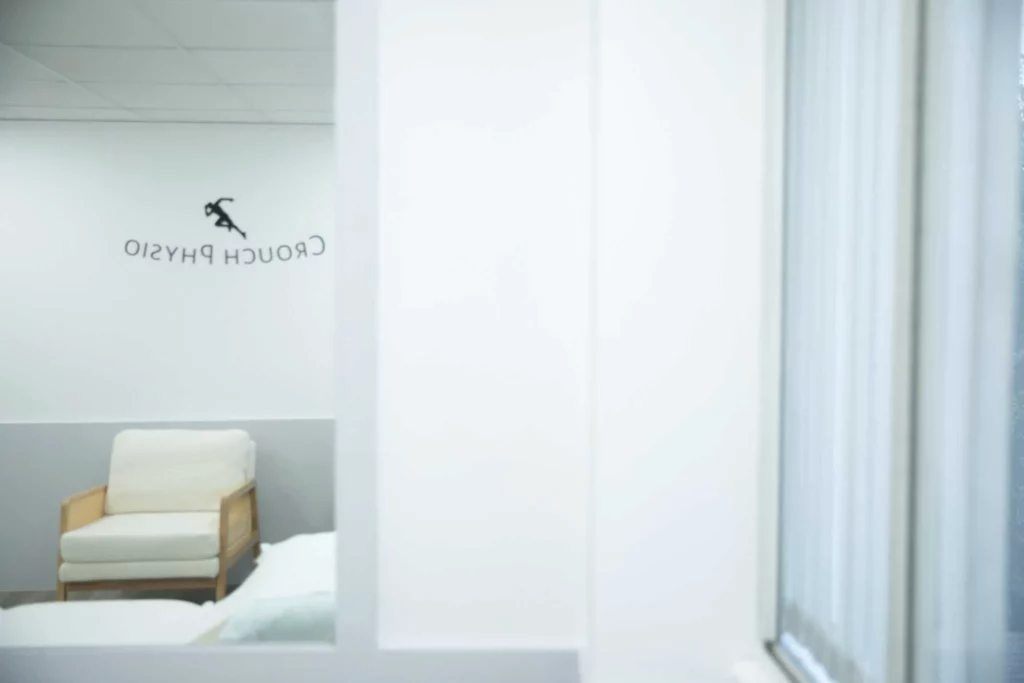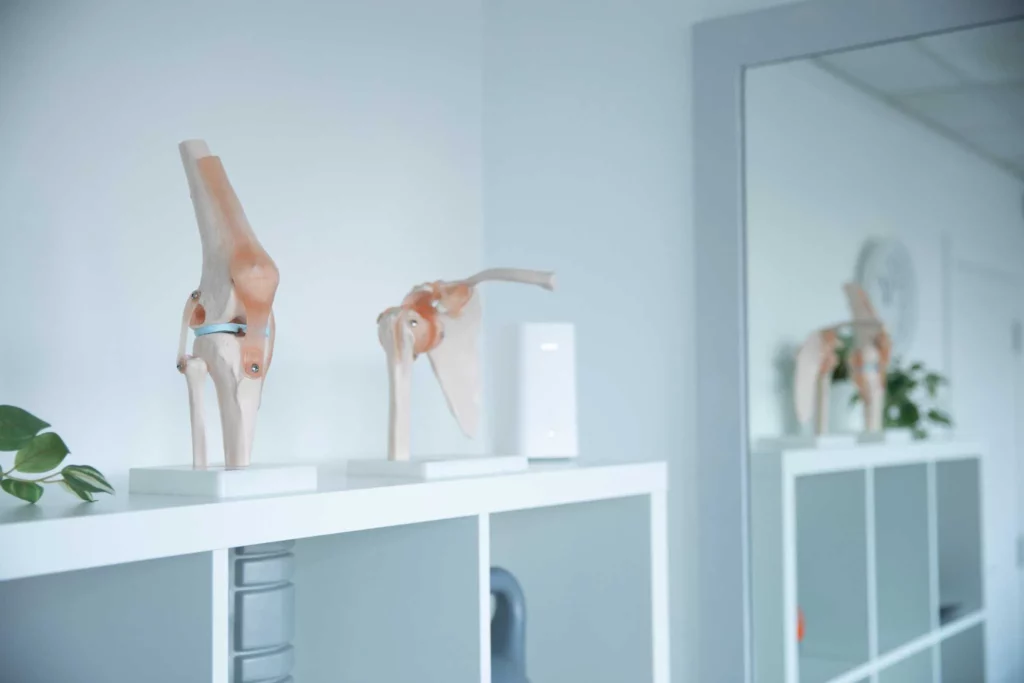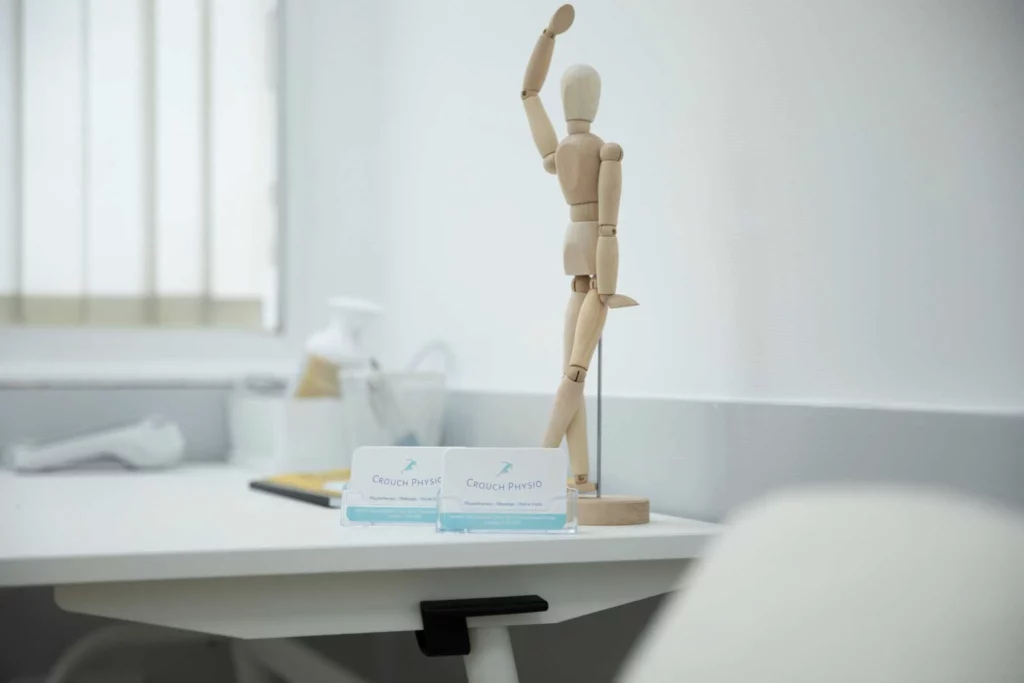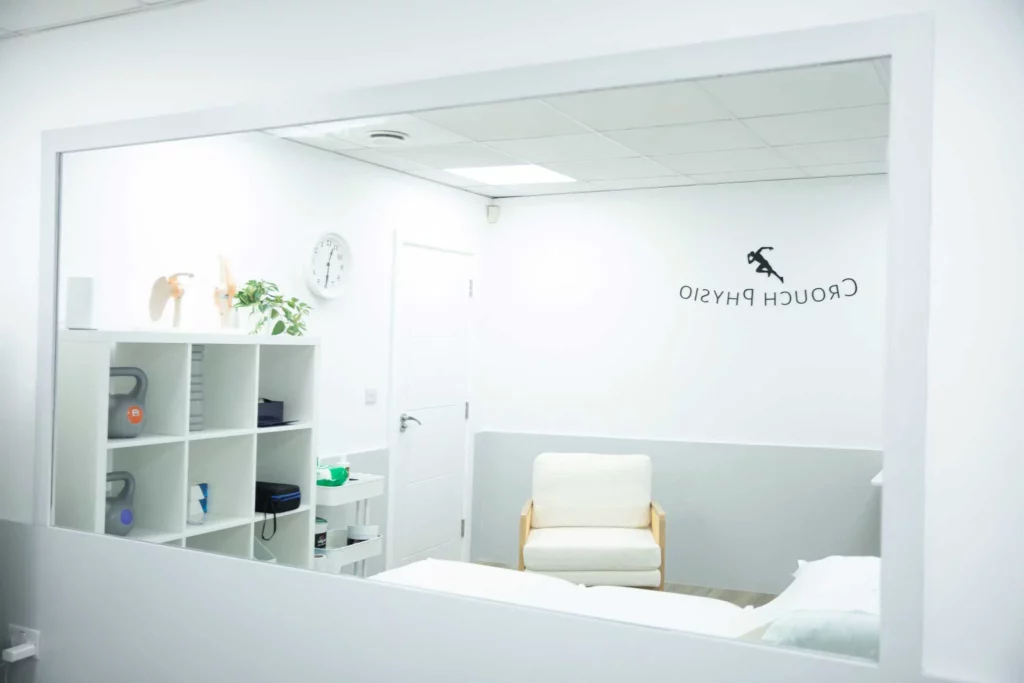Hello there! Let’s have a chat about something that often gets overlooked during rehabilitation: your mindset. As physiotherapists, we spend a lot of time focusing on your body, your muscles, joints, and movements, but there’s so much more to recovery than that. Enter the biopsychosocial model.
This approach reminds us that rehabilitation isn’t just about the bio (your physical body), it’s also about the psycho (your thoughts, emotions, and mental state) and the social (your environment, relationships, and support system). Simply put, it’s all connected, and that’s why your mindset plays such a key role in your recovery journey (1).
The Psychological Side of Recovery
Rehabilitation can be frustrating, no doubt about it. Pain can get you down, progress might feel painfully slow, and it’s tempting to give up. But here’s the thing: how you think and feel about your recovery can have a massive impact on how well you heal.
Why’s that? Because your brain and body work together as a team. A positive, motivated mindset can encourage your body to adapt and improve. On the flip side, stress, anxiety, or a sense of defeat can hold back your progress.
The biopsychosocial model helps us understand this. Your recovery isn’t happening in isolation, it’s influenced by how you perceive your injury, how supported you feel by others, and how well you’re coping mentally.
The Power of Positivity (and It’s Not Just Wishful Thinking)
Being positive doesn’t mean ignoring the hard bits, it means believing that you can get through them. That belief fuels your effort, keeps you committed to your exercises, and helps you stay consistent. And let’s be honest, consistency is where the magic happens.
Even small shifts in how you think can make a huge difference. Instead of saying, “I can’t do this yet,” try thinking, “I’m working on this, and I’ll get there eventually.” It’s all about celebrating progress, not perfection (2).
Dealing with Setbacks
Setbacks are part of rehab, and they’re tough to face. Maybe you have a flare-up or feel like you’ve hit a wall. This is where resilience comes in. If you can approach these moments with the mindset of bouncing back rather than giving up, you’re far more likely to keep going.
Here are a few tips for tackling setbacks:
- Focus on what you can do. There’s always some progress happening, even if it’s not where you expected.
- Talk it out. Chat with your physio, a mate, or a family member, your social connections are a huge part of the biopsychosocial model and can help keep you motivated (3).
- Be kind to yourself. Recovery is rarely a straight path, it’s completely normal to have ups and downs.
Building a Positive Rehab Mindset
Here are some ways to get your mind in the right place during rehab:
- Set small, achievable goals. Hitting even tiny milestones keeps you motivated.
- Celebrate the wins. Finally managed that tricky stretch? Give yourself a pat on the back, you’ve earned it.
- Practice patience. Recovery takes time, but it’s worth the effort for a strong and lasting result.
How the Biopsychosocial Model Shapes Your Recovery
When we take a biopsychosocial approach, it means looking at you as a whole person, not just an injured body part. It’s about understanding how your thoughts, feelings, and external circumstances are affecting your recovery (4).
As your physios, we’re here to guide you through the physical side, help you build a positive mindset, and connect you to resources if your social environment needs a boost. Recovery isn’t just about exercises; it’s about creating the right conditions for you to thrive.
Your Physio’s Role
We’re not just here to tell you to stretch and strengthen, we’re also your cheerleaders. If you’re feeling stuck or overwhelmed, talk to us. We can adjust your plan, celebrate your progress with you, and remind you of how far you’ve come (5).
Ultimately, rehab is a team effort. Your body’s doing the hard graft, but your mind is the coach, motivator, and supporter all rolled into one. Don’t underestimate the power of your mindset, it might just be the key to smashing your recovery goals.
Keep your chin up, stay consistent, and let’s keep moving forward!
Our Barnet, Cockfosters & Enfield Physio’s have tons of experience and are specialists in dealing with rehabilitation. Have confidence that our specialist Physiotherapists will closely assess, diagnose & treat you in the correct & evidence-based way for all injuries. You can book an appointment here.
Blog By: Emre Oz (Musculoskeletal Physiotherapist at Crouch Physio).
References
- Wijma, Amarins J., et al. “Clinical biopsychosocial physiotherapy assessment of patients with chronic pain: The first step in pain neuroscience education.” Physiotherapy theory and practice 32.5 (2016): 368-384.
- Greenglass, Esther R., et al. “Positive coping and mastery in a rehabilitation setting.” International Journal of Rehabilitation Research 28.4 (2005): 331-339.
- Solbakken, Liss Marita, Marita Nordhaug, and Kristin Halvorsen. “Patients’ experiences of involvement, motivation and coping with physiotherapists during subacute stroke rehabilitation–a qualitative study.” European Journal of Physiotherapy 25.3 (2023): 154-161.
- Driver, Christina, Florin Oprescu, and Geoff P. Lovell. “An exploration of physiotherapists’ perceived benefits and barriers towards using psychosocial strategies in their practice.”
- Killingback, Clare, et al. “Physiotherapists’ views on their role in self-management approaches: a qualitative systematic review.” Physiotherapy theory and practice 38.12 (2022): 2134-2148. Musculoskeletal care 18.2 (2020): 111-121.




